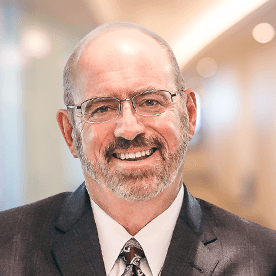byKenneth Haman| Managing Director—AB Advisor Institute
I recently read an article1 that detailed how unvaccinated COVID-19 patients are demanding monoclonal antibodies. The author quotes Dr. Howard Huang, head of Houston Methodist’s infusion program, as saying, “I think it’s irrational.” Why are people who refused the vaccine, because they believe it hasn’t been researched enough to be safe, willing to try the monoclonal antibody approach—which also went through an FDA approval process?
In the article, Dr. Amesh Adalja, an emerging infectious-diseases specialist at the Johns Hopkins University Center for Health Security, calls the situation “paradoxical.” He doesn’t understand why these people would “refuse a shot that boosts your natural antibodies to prevent COVID, but take an antibody drug to treat it after infection.”2
What’s Going on Here?
If you work with clients or study behavioral finance, you often see people making inconsistent or irrational decisions. The doctors’ comments remind me of Dan Heath’s book Upstream: The Quest to Solve Problems Before They Happen, in which the author discusses how decisions made in healthcare, finance, and military and government programs all intuitively focus on solving problems instead of preventing them. Heath believes this is due to heuristics: mental shortcuts that allow people to solve problems and make judgments quickly.
Physicians are seeing exactly the same thing. Despite the obvious benefit of avoiding an illness, it makes more emotional sense to treat a problem after it happens than to take a simple action to prevent it. This is why a patient is more skeptical of a prophylactic vaccine than a treatment. This also helps explain why so many vaccine holdouts change their minds after they contract COVID-19 and are admitted to a hospital: once people have a problem, they start to think differently about available solutions.
What Does This Have to Do with Being a Financial Advisor?
Every financial advisor is familiar with the built-in nature of the solution-versus-prevention heuristic. For every client who started saving early and building wealth gradually to ensure a comfortable retirement, there are many others who waited until their late 50s and then tried to solve the problems resulting from a lack of planning.
Importantly, advisors are people, too. Advisors suffer from the same built-in preference to solve problems rather than prevent them. As I pointed out recently in the AB Advisor Institute program Winning the Race to Zero: Lead, Follow or Get Out of the Way, most advisors will wait until fee compression becomes a problem before they consider evolving their business model.
Change Your Focus
To start thinking about prevention rather than solutions, ask yourself, “In five years, do I think I will be charging more than, the same as, or less than I do now?” This forces the brain to consider a more strategic vantage point. If you are like most advisors and think you will be charging less in five years, the next question becomes: “How much less?” When will innovation and competition from alternative business models drive fees so low that it is no longer possible to stay in business?
Next: The Big Question
For a few advisors, this inquiry will lead to the most important question: “What can I do to protect my business?” Kodak, Sears and BlackBerry all waited until it was too late to prevent obsolescence, just as many investors wait too long to build a meaningful retirement nest egg. Sometimes the only protection is to take the right actions to prevent the problem.
As I’ve written before, I believe our industry is facing its own Kodak moment. When planning for 2022, think about intentionally protecting your business from the pressures of low fees and competition.
Don’t wait until the problem is severe and extremely difficult or impossible to fix. Resist the natural human preference for solutions, and start thinking about prevention.
Visit the AllianceBernstein Advisor Institute for more practice management resources.
1Nick Tate, “Vaccine Holdouts Embrace COVID Antibody Treatment, Mystifying Doctors,” WebMD.com (October 4, 2021)
2Ibid.
Ken Haman is the Managing Director of the AB Advisor Institute. He joined the firm in 2005 from a private consulting practice to the financial-services industry. In his current position, Haman develops and delivers consulting and training to financial advisors and key leaders at AB's partner firms, specifically in the areas of strategic marketing, effective communication with clients and practice-management strategies. His professional experience includes managing a practice in psychotherapy for 20 years in the Washington, DC, area and a consulting practice to large organizations, financial professionals and senior executives in the Mid-Atlantic states. Haman holds a BA in business administration from Lebanon Valley College; an MDiv from Princeton Theological Seminary; an MAPC from Moravian College; and certifications in clinical hypnosis and neuro-linguistic programing from the American Hypnosis Training Academy. Location: New York














